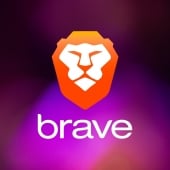-
TikTok slapped with $368 million fine over child privacy violations
The Irish Data Protection Commission (DPC) has fined TikTok €345 million ($368 million) for violating the privacy of children between the ages of 13 and 17 while processing their data.
- September 15, 2023
- 09:05 AM
 8
8
-
'Evil Telegram' Android apps on Google Play infected 60K with spyware
Several malicious Telegram clones for Android on Google Play were installed over 60,000 times, infecting people with spyware that steals user messages, contacts lists, and other data.
- September 10, 2023
- 10:39 AM
 2
2
-
Atlas VPN zero-day vulnerability leaks users' real IP address
An Atlas VPN zero-day vulnerability affecting the Linux client leaks a user's real IP address simply by visiting a website.
- September 05, 2023
- 04:03 PM
 0
0
-
ICO calls on social media firms to protect user's data from scraping
UK's Information Commissioner's Office (ICO), together with eleven data protection and privacy authorities from around the world, have published a statement calling social media platforms to up their protections against data scrapers.
- August 25, 2023
- 12:28 PM
 0
0
-
File sharing site Anonfiles shuts down due to overwhelming abuse
Anonfiles, a popular service for sharing files anonymously, has shut down after saying it can no longer deal with the overwhelming abuse by its users.
- August 16, 2023
- 07:25 PM
 7
7
-
Amazon AWS distances itself from Moq amid data collection controversy
Amazon AWS has withdrawn its association with open source project Moq after the project drew sharp criticism for its quiet addition of data collection features, as first reported by BleepingComputer.
- August 11, 2023
- 10:04 AM
 2
2
-
Popular open source project Moq criticized for quietly collecting data
Open source project Moq (pronounced "Mock") has drawn sharp criticism for quietly including a controversial dependency in its latest release. Moq's 4.20.0 release from this week included another project, SponsorLink, which caused an uproar among open source software consumers, who likened the move to a breach of trust.
- August 09, 2023
- 01:42 PM
 4
4
-
Google Gmail continuously nagging to enable Enhanced Safe Browsing
Google is urging users to activate its Enhanced Safe Browsing feature via numerous alerts in Gmail that keep coming back, even after you acknowledge them.
- August 06, 2023
- 12:24 PM
 9
9
-
Google makes it easier to remove your info, explicit images from search
Google will soon make it easier to remove your personally identifiable information and explicit images from search results right from Google Search or the Google app.
- August 03, 2023
- 01:28 PM
 1
1
-
Apple says new App Store API rules will limit user fingerprinting
Starting this fall, Apple has announced that developers will be required to provide a reason for using certain APIs that can collect information from their apps' users.
- July 28, 2023
- 04:26 PM
 0
0
-
Sponsored Content
More US States are ramping up data privacy laws in 2023
Legislation moves slowly, but in 2023 almost all five of the below regulations will take effect, making it a huge year for state data privacy acts. Learn more from Specops Software about the US privacy laws and what it means for your organization..
- July 25, 2023
- 10:02 AM
 0
0
-
Amazon agrees to $25 million fine for Alexa children privacy violations
The U.S. Justice Department and the Federal Trade Commission (FTC) announced that Amazon has agreed to pay a $25 million fine to settle alleged children's privacy laws violations related to the company's Alexa voice assistant service.
- July 21, 2023
- 08:02 AM
 1
1
-
Facebook behavioral ads banned by Norwegian privacy watchdog
The Norwegian Data Protection Authority (DPA), the country's data privacy watchdog, has banned behavioral advertising on Meta's Facebook and Instagram social networks.
- July 19, 2023
- 08:12 AM
 1
1
-
Spotify reportedly makes users' private playlists public
In what is shaping up to be a widespread privacy controversy, Spotify has come under scrutiny following allegations by users that the music streaming service made their private playlists public without their consent.
- July 14, 2023
- 12:28 PM
 7
7
-
Google Analytics data transfer to U.S. brings $1 million fine to Swedish firms
The Swedish Authority for Privacy Protection (Integritetsskyddsmyndigheten - IMY) has fined two companies with 12.3 million SEK (€1 million/$1.1 million) for using Google Analytics and warned two others about the same practice.
- July 04, 2023
- 11:19 AM
 0
0
-
Brave Browser boosts privacy with new local resources restrictions
The Brave team has announced that the privacy-centric browser will soon introduce new restriction controls allowing users to specify how long sites can access local network resources.
- June 28, 2023
- 11:44 AM
 1
1
-
DuckDuckGo browser for Windows available for everyone as public beta
DuckDuckGo has released its privacy-centric browser for Windows to the general public. It is a beta version available for download with no restrictions.
- June 22, 2023
- 08:01 AM
 5
5
-
SMS delivery reports can be used to infer recipient's location
A team of university researchers has devised a new side-channel attack named 'Freaky Leaky SMS,' which relies on the timing of SMS delivery reports to deduce a recipient's location.
- June 17, 2023
- 10:07 AM
 0
0
-
Strava heatmap feature can be abused to find home addresses
Researchers at the North Carolina State University Raleigh have discovered a privacy risk in the Strava app's heatmap feature that could lead to identifying users' home addresses.
- June 11, 2023
- 10:15 AM
 1
1
-
Sextortionists are making AI nudes from your social media images
The Federal Bureau of Investigation (FBI) is warning of a rising trend of malicious actors creating deepfake nude content from social media images to perform sextortion attacks.
- June 06, 2023
- 04:43 PM
 5
5


























